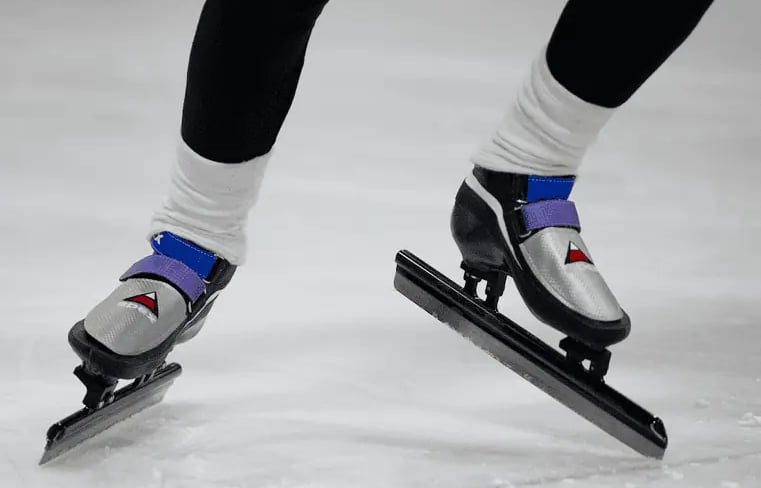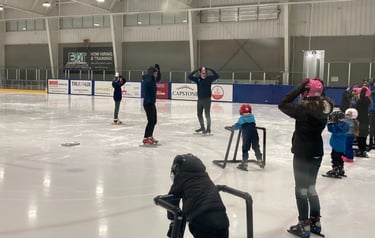
FREQUENTLY ASKED QUESTIONS ABOUT LEARNING TO SKATE
How do I know what level to enroll my child in?
On the Ice Together
This level is appropriate for the child who is not yet able to skate without assistance, or who would feel more comfortable with a familiar adult on the ice with them. You do not have to continue to go on the ice with the child once they are comfortable skating on their own, but you may continue to do so for as long as you wish.Skating on My Own
This level is appropriate for the child who has some basic skating skills, and is comfortable with participating on their own. The coaching ratio is 6 to 1, so your child will have lots of individual attention. With a number of separate groups on the ice, instruction will be specific to the skill level of the children in the group, and children may move between groups as their skills develop. Skills acquired at this level will be useful for any ice sport.Full Speed Ahead
This level is appropriate for the child with good skating skills, and who wishes to try speed skating. Basic speed skating skills will be introduced. While there will be a specific speed skating approach, skating skills for any ice sport will be improved.
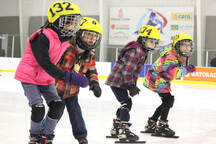

What does the learning program consist of?
Small children learn best when their learning activities are fun. When participating in games, children forget their fears about what they are trying to learn, and focus instead on the objective of the game. There will be formal instruction on the specific skills to be learned during the program, but a lot of the learning will occur during games designed for the practice of those skills. As the children's skills develop, there will be more formal instruction and drills, but games will continue to be a key learning tool.


How will my child's progress be tracked?
The program follows the Speed Skating Canada First & Fast Strides Program, which has clearly defined skills to be achieved at each level. Coaches will track each skater's progress using the First & Fast Strides report cards, and Stickers & Pins will be awarded for different milestones and each level of the program is completed.


What will we need to bring?
Skates (for On the Ice Together or Skating on My Own)
Skaters can bring their own skates. If you wish and skates are available, children in these programs can use speed skates provided by the club. We sometimes find that younger children get their balance on skates more quickly on speed skates because of the flatter rocker on the blade, and then make more rapid progress in learning different skating skills.Helmet
Helmets are mandatory for all ages in municipal arenas. A hockey or ski type helmet is ideal.Skates for Full Speed Ahead
Speed skates will be provided for this program.
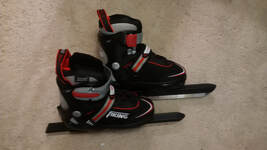

What do the terms "Active Start", "FUNdamentals" and "Learning to Train" mean?
These terms are used to refer to the child's developmental stage, based on Speed Skating Canada's Long Term Participant and Athlete Development model. This applies the basic principles established by the Canadian Sport for Life movement and its Long Term Athlete Development model to the specific practices of teaching skating and speed skating.
An update to the Sport for Life development model has recently been issued. The new model is more inclusive and applies to physical activities beyond sport. Information about the new model is available at this link: Introducing Long-Term Development in Sport and Physical Activity 3.0 and the full document is available at this link: Long-Term Development in Sport and Physical Activity 3.
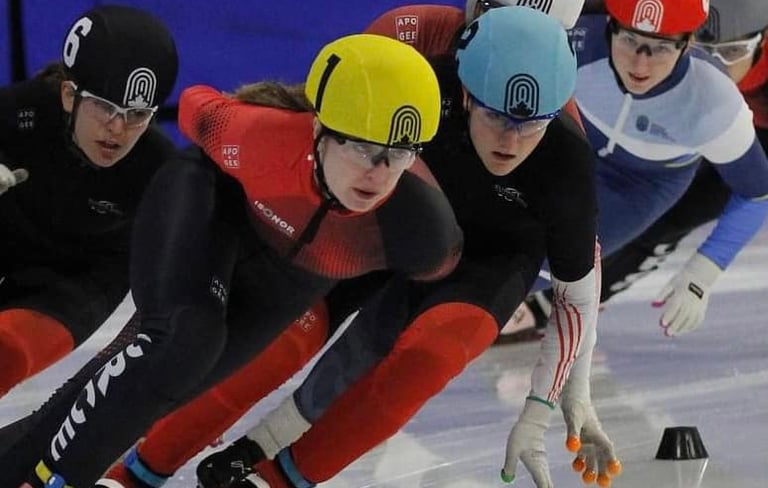

I have my own speed skates. What do I need to do about sharpening them?
Speed skates are hand sharpened using a jig and a sharpening stone. They should never be machine sharpened, as that process will take off the rocker, and usually results in the blades being hollow ground rather than flat ground.
We can teach you how to sharpen your own skates. If you are looking for someone to sharpen them for you, please contact info@dcspeedskate.com
